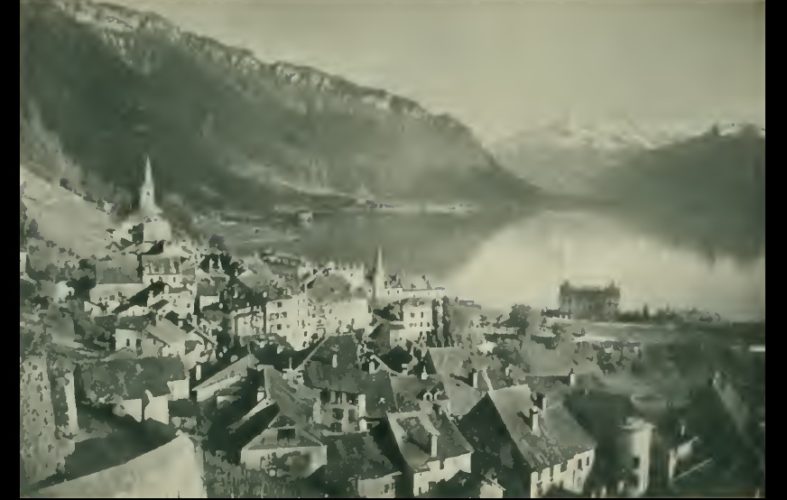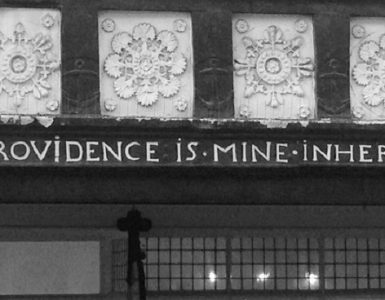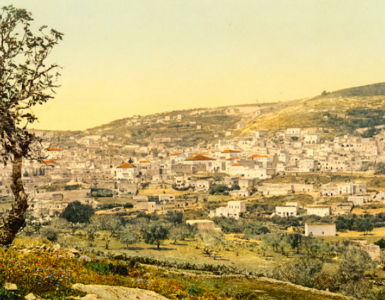 Pestilence, disease, epidemics, and plagues were ever-present dangers in sixteenth-century Europe. Cunningham and Grell have observed “that in every year between 1494 and 1649 plague was killing its thousands and tens of thousands suddenly and horribly somewhere in Europe.” People had to live with the threat of plague entering the gates of their cities. In the fall of 1542 plague made one of its reoccurring visits to the Swiss Confederation and tormented John Calvin’s Geneva. The pastoral issues that arose regarding care for the many sick were difficult to resolve. Geneva’s hospital for plague victims was located outside the wall of the city. The Ecclesiastical Ordinances of Geneva say simply, “As for the plague-hospital, it is to be kept entirely separate,” so Genevans fulfilled the directive and separated the obviously sick from the apparently well. But there was a problem for the churches of Geneva—how would pastoral visitation in the hospital be accomplished? Intuitively, one would think that Calvin and the Company of Pastors—an entity bearing some similarity to a presbytery—would share visitation of the quarantined. Even though this was the intuitive and equitable way to resolve the ministry, it was not what occurred. The plan for visitation was to appoint one or more ministers for the purpose. In Calvin’s Company of Pastors, Scott M. Manetsch has provided an observation regarding the challenges a minister’s calling may involve.
Pestilence, disease, epidemics, and plagues were ever-present dangers in sixteenth-century Europe. Cunningham and Grell have observed “that in every year between 1494 and 1649 plague was killing its thousands and tens of thousands suddenly and horribly somewhere in Europe.” People had to live with the threat of plague entering the gates of their cities. In the fall of 1542 plague made one of its reoccurring visits to the Swiss Confederation and tormented John Calvin’s Geneva. The pastoral issues that arose regarding care for the many sick were difficult to resolve. Geneva’s hospital for plague victims was located outside the wall of the city. The Ecclesiastical Ordinances of Geneva say simply, “As for the plague-hospital, it is to be kept entirely separate,” so Genevans fulfilled the directive and separated the obviously sick from the apparently well. But there was a problem for the churches of Geneva—how would pastoral visitation in the hospital be accomplished? Intuitively, one would think that Calvin and the Company of Pastors—an entity bearing some similarity to a presbytery—would share visitation of the quarantined. Even though this was the intuitive and equitable way to resolve the ministry, it was not what occurred. The plan for visitation was to appoint one or more ministers for the purpose. In Calvin’s Company of Pastors, Scott M. Manetsch has provided an observation regarding the challenges a minister’s calling may involve.
The responsibility of providing pastoral care to people infected by the plague invariably placed in sharp relief the gravity of the minister’s calling and the personal costs that came with it.
The severity of the disease sharpened the minister’s focus on what his work could involve. Plague casualties in the era could number as much as a third of a city’s population and spending time among the plague afflicted increased one’s likelihood of contracting the disease because the hospitals were incubators for the disease. Pastoral visits to the quarantined were potentially fatal. Geneva sought ministers to voluntarily take on hospital visitation, but none would go until Pierre Blanchet agreed to take on the hazardous work of spiritual care for the sick and dying. Calvin was personally troubled by the situation. In a letter composed October 1542 he confided about his thoughts to his colleague and friend Pierre Viret.
If anything happens to Blanchet. I fear that I must take the risk upon myself, for as you observe, because we are debtors to one another, we must not be wanting to those who, more than any others, stand in need of our ministry.
As the leader of Geneva’s clergy Calvin realized his responsibility to take on Blanchet’s work if needed. Calvin was afraid. The French clergyman who sometimes is caricatured as a stolid, doctrinaire, recluse with an iron will driving his theology was in fact a man and he could experience fear. It was a difficult reality for the theologian known for his emphasis on the sovereignty of God and His ever-directing providential hand. Calvin knew the theology inside-out, but the reality of the plague dangers had come home to him during previous experiences with its horrors. While in Basel he had to be the bearer of bad news to his mentor Guillaume Farel when his nephew died of the plague in 1538. Calvin had visited the nephew but arrived at his bedside to find “the signs of approaching death were now evident,” so he “imparted spiritual rather than bodily comfort.” Then in March 1541, Calvin once again had to write Farel a saddening letter telling him that their friend Claude Ferey, a French refugee in Strasbourg, and Louis the brother of their mutual friend Charles de Richebourg had both died of the plague. Calvin’s wife Idelette, brother Antony, and sister Marie had fled the city to avoid the epidemic. In a letter to Farel, “you cannot believe the grief which consumes me on account of the death of my dear friend Claude.” Pierre Blanchet continued his plague ministry in Geneva through the fall of 1542, then the following spring the pestilence renewed its strength. Pierre continued his visits to the hospital until after just a few weeks of renewed ministry, he died of the plague.
The ravages of the plague in Geneva would continue into 1544. The hospital would require constant visitation by ministers. Blanchet’s remains had been covered with the blanket of death, so the Company of Pastors once again needed to resolve how to provide ministry to the victims. Calvin believed that by default he would be asked to visit the hospital since his colleagues would not go. Manetsch notes that Calvin was excluded from the list of prospects by Geneva’s magistrates because of his “international stature and importance for the Genevan church.” Calvin had already been making pastoral visits to parishioners’ homes, but if he went to the hospital the risk was too high. Needless to say, the government’s decision did not sit well with Calvin’s pastoral colleagues. He was already resented by some Genevans because he was a Frenchman whose fame brought not only French foreigners but those from other lands seeking asylum and the teaching of Calvin. The Company of Pastors proceeded to decide by lot who would go beyond the city wall and minister, but when the lot was decided the ministers chosen simply refused to do their jobs. What would the Geneva church do? Once again, a volunteer, Mathieu de Geneston, would minister to the sick but his work lasted only a few weeks until he contracted plague and died.
Currently, the world is experiencing the rapid spread of a virus and fear increases as it advances. Because of the knowledge God has given modern medicine through the scientific means he created, there is considerably more known about epidemics, how they spread, and how to fight them with testing, medication, quarantine, sanitation, and other means. The Centers for Disease Control as well as other governmental agencies are constantly monitoring the spread of Covid-19 and making recommendations to counter its progress. Christians need to be wise and listen to the counsel of those who rule because they bear the sword as God’s ministers, but worship and pastoral ministry are spiritual activities and the government’s recommendations and directives need to be applied in churches with spiritual concerns in mind. As is commonly known, Geneva had an intermingling or fusion of church and state, which was clearly exhibited in the magistracy transgressing the spiritual ministry of the church by excluding Calvin from hospital visitation because of his importance as a Reformer. He was afraid but would have provided spiritual service to the hospitalized plague victims because of his concern for them and desire to serve equally with the Company of Pastors, if he had been allowed to do so.
Barry Waugh
Notes—It would be interesting to know how the Geneva churches and their worship services were adjusted, if at all, because of the plague. Information about Calvin and plagues is found on pages 284-89 of Scott M. Manetsch, Calvin’s Company of Pastors: Pastoral Care and the Emerging Reformed Church, 1536-1609, Oxford, 2015, which has been reviewed on Presbyterians of the Past. Also used were, Andrew Cunningham and Ole Peter Grell, The Four Horsemen of the Apocalypse: Religion, War, Famine and Death in Reformation Europe, Cambridge, 2000; Herman J. Selderhuis, John Calvin: A Pilgrim’s Life, IVP Academic, 2009; Andrew Pettegree, Europe in the Sixteenth Century, Blackwell, 2002; and Bernard Cottret, translated by M. Wallace MacDonald, Calvin: A Biography, French 1995, English 2000. Calvin’s letters regarding the plague were found in Jules Bonnet, Letters of John Calvin Compiled from the Original Manuscripts and Edited with Historical Notes, Vol. 1, trans. David Constable, Edinburgh, 1855.





